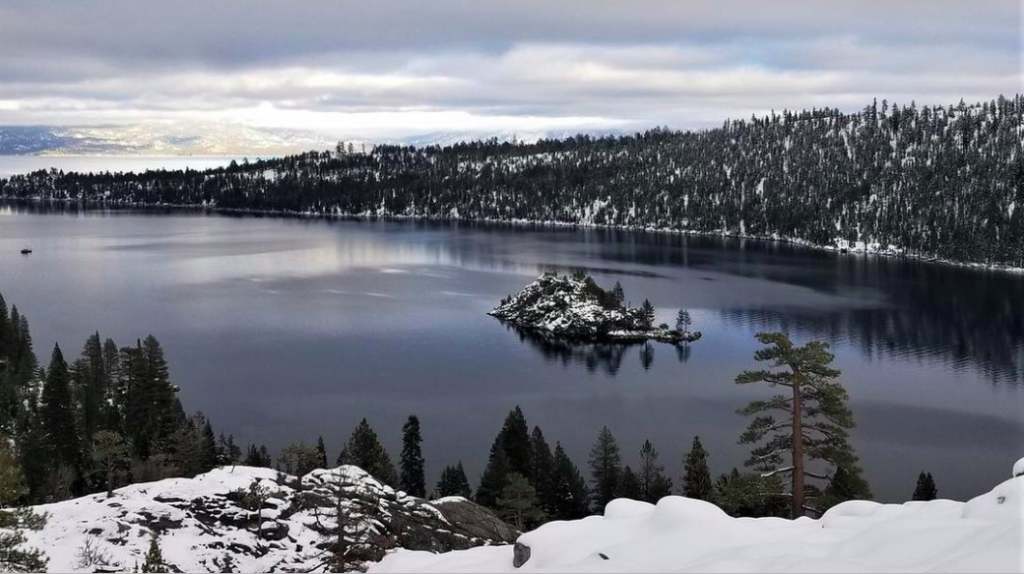The U.S. Senate passed a sweeping public lands package. The bill designates more than one million acres of wilderness for environmental protection and permanently reauthorizes the Land and Water Conservation Fund (LCFW).
The vote, 92 to 8 in favor, offered a rare moment of bipartisanship in a divided chamber and a huge victory for environmentalists at a time when the Trump administration is working aggressively to strip away protections on public lands and open them to mining and drilling.
Senate Bill 47, which encompasses more than 100 bills addressing land exchanges, national parks, wildlife conservation, recreation and more nationwide, now goes to the House for consideration.
The bill creates more than 1.3 million acres in Utah, New Mexico, Oregon and California as “wilderness,” the most stringent level of federal land protection, including prohibiting even roads and motorized vehicles. Less-stringent but permanent protections of land were created in Montana and Washington state.
The bill permanently withdraws more than 370,000 acres of land from mining around two national parks, including Yellowstone, and permanently authorizes a program to spend offshore-drilling revenue on conservation efforts.
It also classifies approximately 225 miles of river in Massachusetts and Connecticut and 280 miles of river in Oregon as wild, scenic, or recreational. It includes three new national monuments to be administered by the National Park Service: the Medgar and Myrlie Evers Home National Monument in Jackson, Miss., the Mill Springs National Monument in Kentucky and the Camp Nelson National Monument in Kentucky.
The legislative package will also:
- Renew Every Kid in a Park, a program that provides fourth grade students and their families free admission to all national parks and other federal lands, for seven years.
- Approve the 21st Century Conservation Service Corps Act, which would give more work opportunities to young adults and veteransin maintaining trails and other public lands sites needing maintenance.
The 662-page measure, which the Congressional Budget Office projects would save taxpayers $9 million, enjoys broad support in the House. The lower chamber is poised to take it up after the mid-February recess, and White House officials have indicated privately that the president will sign it.
LWCF, a historically bipartisan program that has funded projects in all 50 states since its inception in 1965. The program, which expired last September, has supported everything from the expansion and maintenance of local parks and recreation centers to national forests, national parks and historical sites
Said U.S. Senate Majority Leader Mitch McConnell (R-KY) in a statement,‘“It touches every state, features the input of a wide coalition of our colleagues, and has earned the support of a broad, diverse coalition of many advocates for public lands, economic development, and conservation. I’m especially proud that the bill will take action on some key priorities for my state of Kentucky: from protecting national monuments, to preserving the legacy of historically black colleges and universities, to helping local communities fight invasive species.”
Western lawmakers of both parties have been working for four years on the bill.
“It’s encouraging to see the new Congress immediately moving bipartisan legislation that conserves our land and water for the good of all Americans and future generations,” said Jamie Williams, the president of The Wilderness Society, in a statement. “Today marks an overdue but critical victory for America’s most important conservation funding program and for protecting our wild lands, from Utah’s red rock canyons to the heart of Washington’s North Cascades.“
“We are one step closer to adding over 2 million acres of parks, wilderness, and conservation lands into protected status,” said Kristen Brengel, vice president of government affairs for the National Parks Conservation Association. “We will also better tell America’s story with six new National Heritage Areas and two new national monuments managed by NPS.”
“This package gives our country a million acres of new wilderness, protects a million acres of public lands from future mining, permanently reauthorizes the Land and Water Conservation Fund and balances conservation and recreation for the long term,” Representative Raúl Grijalva, the Arizona Democrat who heads the House Natural Resources Committee, told the New York Times. “It’s one of the biggest bipartisan wins for this country I’ve ever seen in Congress.”
“Today’s vote is a big step toward ending the cycle of uncertainty that has plagued America’s best conservation program,” said Kameran Onley, director of United States Government Relations at the Nature Conservancy. “At no cost to the taxpayer, the Land and Water Conservation Fund has helped expand national parks, preserve pristine landscapes, and create trails and athletic fields across the country.”
“After four years of working on this issue, the Senate was finally able to permanently reauthorize the crown jewel of conservation programs, the Land and Water Conservation Fund,” Sen. Cory Gardner, R-Colo., said in a statement. “I have championed this program throughout my time in the Senate because of how important it is to all Coloradans who love our great outdoors. The program has a direct impact on public lands in Colorado and will be used to protect our state’s natural beauty for future generations. I’m thrilled we were able to finally permanently reauthorize this commonsense program supported by Coloradans across the political spectrum. This is a great day for the future of Colorado’s public lands.”
“Thank you to every Coloradan who has spoken up in support of LWCF, met with me across the state at an LWCF-funded project, and traveled to Washington to advocate for this critical program. It’s your persistence that has led to this historic vote in the Senate to permanently save the conservation fund. After a decade of leading the charge for permanent reauthorization, today is a victory for Colorado and a commitment to future generations,” said Sen. Michael Bennet, D-Colo. “It’s rare that a bipartisan lands package moves in Congress, so this bill is a significant accomplishment for communities across Colorado. I am particularly pleased to know my bill with the late Senator John McCain of Arizona, who valued service to this country above all else, is one step closer to becoming law. Our bill takes the best of America—our youth, veterans, and great outdoors—and expands the pathway for one to help the other.”
“Today’s vote is an important win for our national parks and public lands. LWCF has a 50-year history as America’s most successful parks program, and it deserves permanent reauthorization. We hope the House quickly follows in the Senate’s footsteps to send the public lands bill to the President’s desk,” Center for Western Priorities Deputy Director Aaron Weiss said in a statement. “At the same time, it’s imperative that members of Congress reach across the aisle to devote full, dedicated funding to safeguard America’s conservation and recreation future. Year after year, Congress has shortchanged LWCF, appropriating less than half of what is collected for recreation and conservation projects across the country. With permanent reauthorization and full, dedicated funding, America’s parks will have the certainty they deserve.”
Environment America’s Public Lands Campaign Director Erik DuMont said in a statement, “Our country’s most successful conservation and recreation program has been on life support since it expired in September. Thankfully we’re seeing movement on this now, and we applaud the Senate for getting the job done and not letting it fall through the cracks. Still, more needs to be done. Since LWCF funding expired, public lands projects have missed out on more than $300 million in revenue. While the Senate bill that passed today permanently renews the program, it does not fully fund it at the $900 million a year authorized in the original LWCF bill. To maintain America the Beautiful, we need to protect our public lands. The Senate took a big step toward doing. Now the House must act. We’re confident it will, but not so confident that we’ll stop pushing until the program is reauthorized with full funding.”
Image courtesy California State Park
















